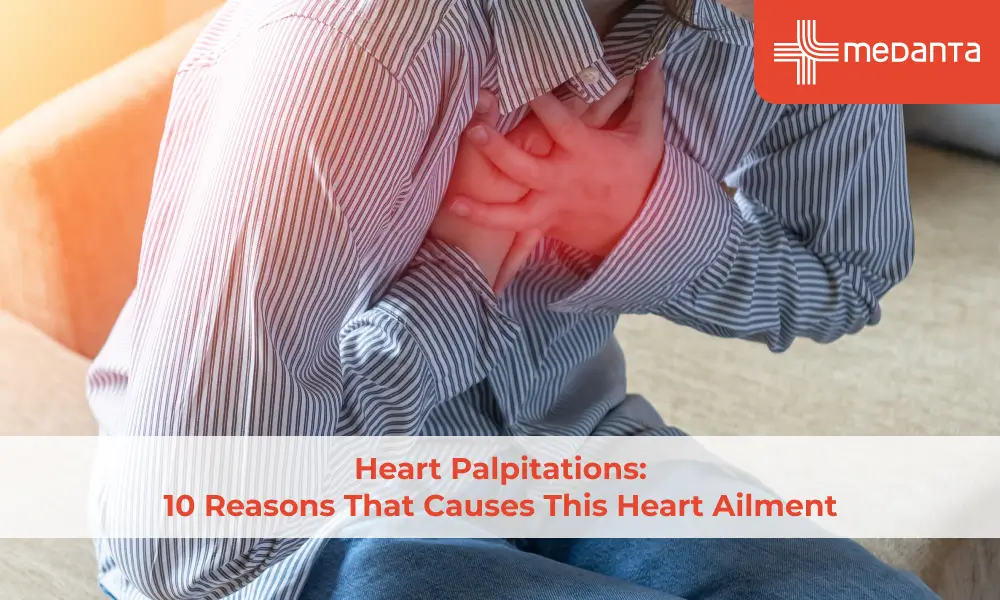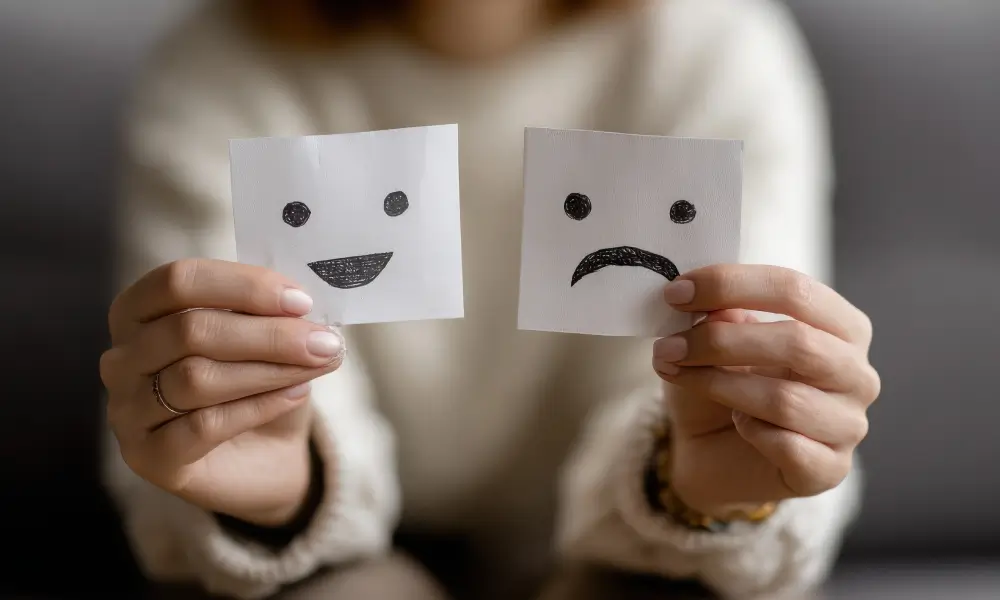Heart Palpitations: 10 Reasons That Causes This Heart Ailment

Have you ever felt your heart flutter or skip a beat? Worried it might be a symptom of heart disease? This is actually a common phenomenon called palpitations of the heart.
Common Causes for Heart Palpitations.
While palpitations can be a sign of heart disease in extreme circumstances, they are usually caused due to lifestyle choices. Read on to know more:
Heart Rhythm Problems
You may experience irregular heartbeats due to conditions like Arrhythmia which can cause a rapid increase or decrease in the pace of your pulse due to issues in the electric conduction in your heart.Hyperthyroidism
The thyroid is responsible for the regulation of hormones. Women constantly face thyroid hormone imbalances due to an overactive (Hyperthyroid) or underactive (Hypothyroid) thyroid gland. This hormonal fluctuation can lead to flutters in the heart.Cigarette Smoking

Cigarette smoking can elevate your body's heart rate and blood pressure due to the nicotine present in tobacco. Quit smoking immediately if you frequently suffer from a heavy heart. Be warned that nicotine withdrawals could continue to give you palpitations as your body fights the addiction, but don't worry as they will pass in a few weeks.High-stress Situations
Situations that cause stress can lead your body to release heartbeat raising hormones as a fight or flight response to your stressful situation (stimulus). This commonly manifests itself in the form of panic attacks, irrational fears, and heart palpitations. This is usually not a sign of any heart trouble and will pass once you calm down.Too much Caffeine
Caffeine is a powerful stimulant that is known to increase our heart rates. Avoid drinking too many cups of coffee or highly caffeinated cold drinks, especially if you tend to feel too jittery after a single serving of caffeine. Flutters in your heart could be a result of excessive caffeine intake.Hormonal Fluctuations

Women are prone to heart palpitations when they face hormonal imbalances during their periods, pregnancy or menopause. These palpitations are usually fleeting and should go away once hormone levels stop fluctuating.High Fever
Your body tends to consume energy at a faster rate when you are down with a fever. This reaction, especially during high-temperature fevers can cause palpitations due to spikes in your heart rate.Intense Workouts
An intense workout can usually leave you gasping for breath as your tired heart struggles to pump more oxygen-rich blood to your tired muscles. It is common to experience heart palpitations if you haven't exercised in a while. While these palpitations will cease to occur if you exercise regularly, we recommend you check with your doctor for signs of Arrhythmia if the palpitations continue to be a problem.Low Blood Sugar
Palpitations are a common side effect of fasting due to your body’s tendency to release stress hormones like adrenaline which give your body the energy required to deal with a lack of food. A drop in your blood sugar will, therefore, lead to a higher heart rate due to all the adrenaline coursing through your food-starved veins.Drug Side Effects
Heart palpitations can also be a common side effect of certain medications, such as:Decongestants and Anti-Inflammatory medicines
Hyper Thyroid medication
Antipsychotics
Asthma medication
Antifungal drugs
Blood pressure regulators
We hope this list has shed some much-needed light on the most common reasons why your heart can occasionally skip a few beats.
Always make it a point to consult a doctor if heart palpitations last longer than a minute as this could be a symptom of a bigger problem.






